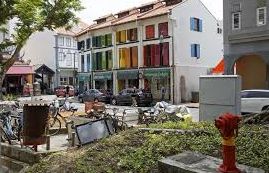Long delays in processing EU settlement applications leave families in limbo, with mounting concerns over jobs, travel, and housing.
A year after the deadline for the EU Settlement Scheme passed, hundreds of thousands of EU nationals living in the UK are still waiting for decisions on their applications. Campaigners are now warning of the severe repercussions of continued delays, which are impacting people’s job prospects, housing, and travel plans, as nearly 250,000 applicants remain in a backlog.
Among those affected is 27-year-old Hussen Mohamed, a Dutch-Somali who has lived in the UK for 17 years. Mohamed applied for his settlement status in November 2019 but, to this day, is still awaiting a response. Despite numerous inquiries to the Home Office, he was repeatedly told his case was “in the backlog,” with no explanation for the delay. When The Independent reached out to the Home Office, it was revealed that Mohamed had been wrongly identified as his twin brother, who had been convicted of murder in 2018.
Living without EU settled status for almost three years, Mohamed has faced significant challenges, including being unable to find a job and repeatedly detained at airports after travelling abroad. “This is not normal,” he said, frustrated by the way he has been treated. “You’re being questioned to get into a country where you’ve worked and paid taxes. It makes you question everything about the system.”
Government figures reveal that as of 31 May 2022, 245,700 applications remained unresolved, with over 6.6 million applications having been submitted since the scheme’s inception in 2019. However, many individuals have found their lives put on hold as a result, with cases like Mohamed’s being far from isolated.
Similarly, Angelique Santos, a Filipino national working as a carer in London, and her nine-year-old daughter, Jina, are still waiting for a review decision on their applications, which were submitted in June 2021. Despite providing further evidence in response to a refusal, they have been left in uncertainty for over eight months. This delay has prevented them from travelling to visit family in the Philippines and to Portugal for medical treatment for Jina.
Santos expressed her frustration: “It’s very stressful. We can’t plan our lives or travel as a family. My daughter is sad because she doesn’t understand why we can’t go anywhere.” She went on to highlight how the delay was affecting her mental health, as well as her financial situation, adding, “It feels like we’ve been forgotten. The government can’t just keep putting everything else on hold.”
The group the3million, which advocates for the rights of EU citizens in the UK, has voiced deep concern over the ongoing delays. Spokesperson Andreea Dumitrache stressed that the uncertainty faced by applicants is causing significant disruption. “These delays have serious consequences. Jobs are at risk, travel is restricted, and many people are living with the fear that they might not be able to access essential services like healthcare.”
Alec Herron, from the charity Settled, added: “EU citizens were promised that nothing would change after Brexit. But now, many are facing discrimination and difficulties in accessing services like mortgages, simply because their status remains unresolved.”
The Home Office has acknowledged the delays, with a spokesperson stating: “We apologise to Mr Mohamed for the delays in processing his application, which we are working urgently to resolve. The EU Settlement Scheme has been an overwhelming success, with over 5.8 million grants of status made, but we are dealing with unprecedented demand.”
Despite this, campaigners and affected individuals are calling for the government to prioritise the resolution of these cases and address the concerns of EU nationals still waiting for a fair outcome.








